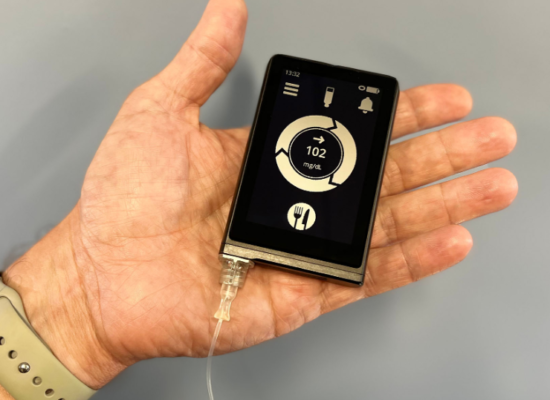Iffy flu predictions, pharma’s rep takes a it, playing away memories, and more
18 Oct 2022
Posted by Andrew Kantor
The ‘pandemic’ that fizzled
“What happened to monkeypox?” asks the New York Times. Cases are dropping like rocks that are tied to other rocks.
You can read the 900-word article, or just know that it seems to be thanks to a few basic factors: Vaccines, less casual sex (in part because of the end of Pride Week festivities), and the virus simply burning itself out. After all, transmission wasn’t as easy as with Covid.
Bionic pancreas goes mainstream (soon)
People have been building their own artificial pancreases for years (see Buzz from April 2019), using off-the-shelf components, smart phones, and parts from insulin delivery devices.
But now a device out of Boston University — the iLet wearable automated insulin delivery device — is backed by a company that’s looking to take it to market with FDA approval and everything. And it looks a lot slicker than the ones hackers make for themsleves.
[T]hose using the bionic pancreas spent, on average, an additional 2.6 hours a day with their glucose levels in the target range of 70 to 180 milligrams per deciliter [compared to “standard care”].
The iLet has been human tested, and it’s awaiting FDA clearance.

Unpredictable flu
Can we predict our flu season based on Australia’s? That’s been the conventional wisdom for years, but UGA professor John Drake says ‘Maybe not.’
He tackles two questions. First, whether this upcoming flu season in particular is going to be bad. The data from Down Under, he says, isn’t conclusive. The high numbers from this past season of theirs, he says, could simply be from more testing; the positivity rate isn’t any worse than other years.
And as a predictor in general? That’s easy to figure: Just look at annual data for them and for us. The result shows “there’s no evidence here that Australia is a leading indicator for flu in the US.”
Our flu season might be mild, might be awful, but we can’t rely on Aussie data to tell us.
ICYMI: Hearing aids went OTC
Yesterday, hearing aids were officially approved for over-the counter sales.
Tomorrow, thousands of GenXers and Millennials will be on the phone with their parents explaining how to calibrate the things.
The Long Read: The Cost of Weight Loss edition
New weight loss drugs like Wegovy work darned well, but there’s a big trade-off: price. Because they have to be taken for years, and because drug makers have set the price so high ($13,618 per year for Wegovy), they may not make sense — especially compared to once-and-done surgery.
Read “New Generation of Weight Loss Medications Offer Promise — But at a Price” from KHN.
Pharma loses its street cred
The reputation of the pharmaceutical industry was sky-high in 2021 thanks to the combo of Covid vaccines and treatments. But that was then. Now, according to people who track industry reputation, the luster is gone,
Many people are experiencing “Pharma burnout … exhausted by the prominent role pharma has played in their lives for the past two years.”
And instead of capitalizing on its “halo,” pharma companies showed that their spots hadn’t changed, and corporate greed was still the name of the game — “people are ‘tired of untrustworthy companies perpetuating pre-pandemic modes of operation’.”
Captain Obvious thinks it’s probably true of a broken leg, too
“Having symptoms of COVID-19 has been associated with worse mental health and lower life satisfaction.”
Weird Science: Memory Manipulation (take 2)
The other day we told you how researchers found a way to replace bad memories with good ones using lasers. Now British researchers think they can ‘weaken traumatic and intrusive memories’ using sound played while you sleep.
[T]he results of our study raise the possibility that we can both increase and decrease the ability to recall specific memories by playing sound cues when an individual is asleep.


